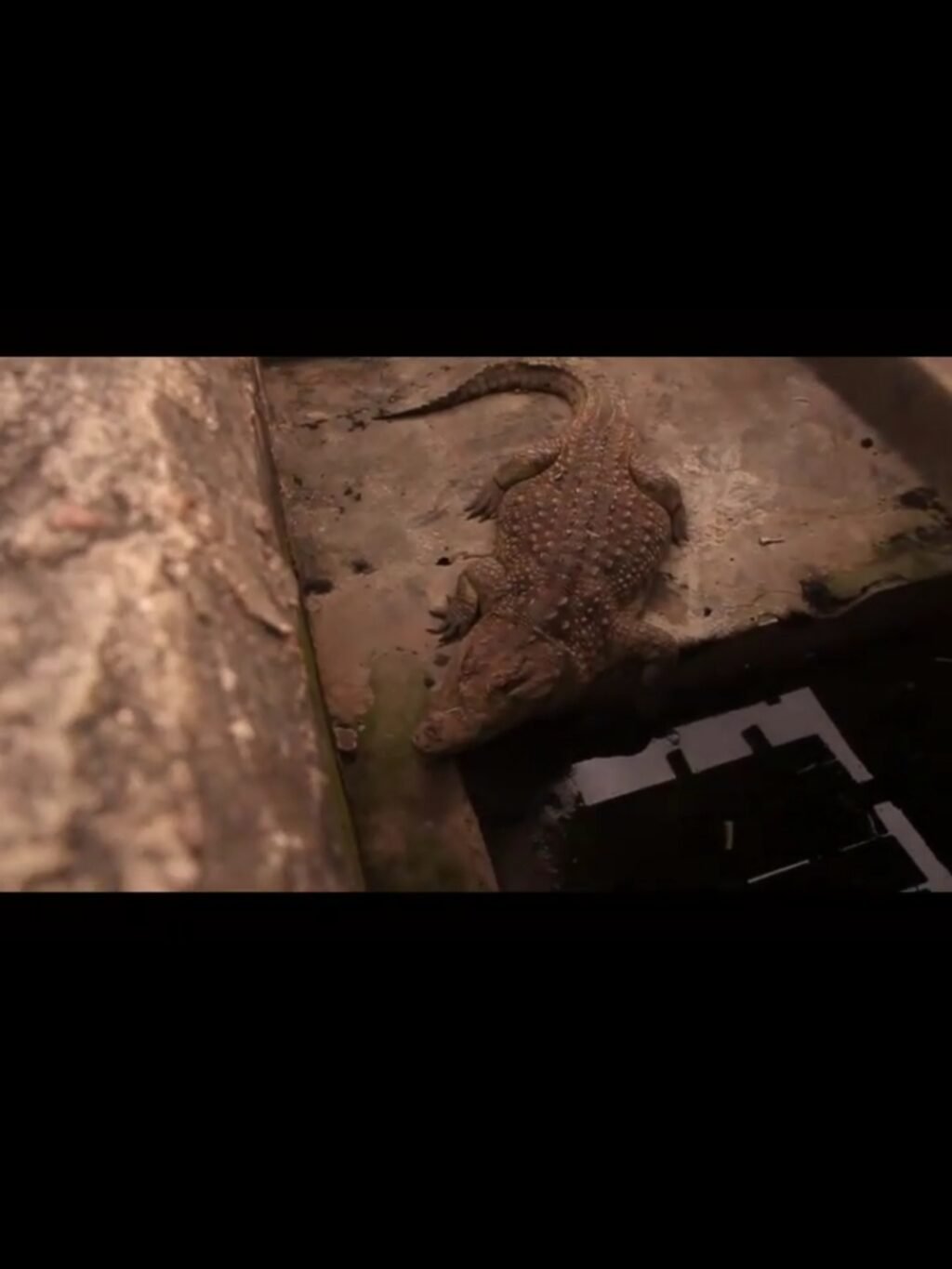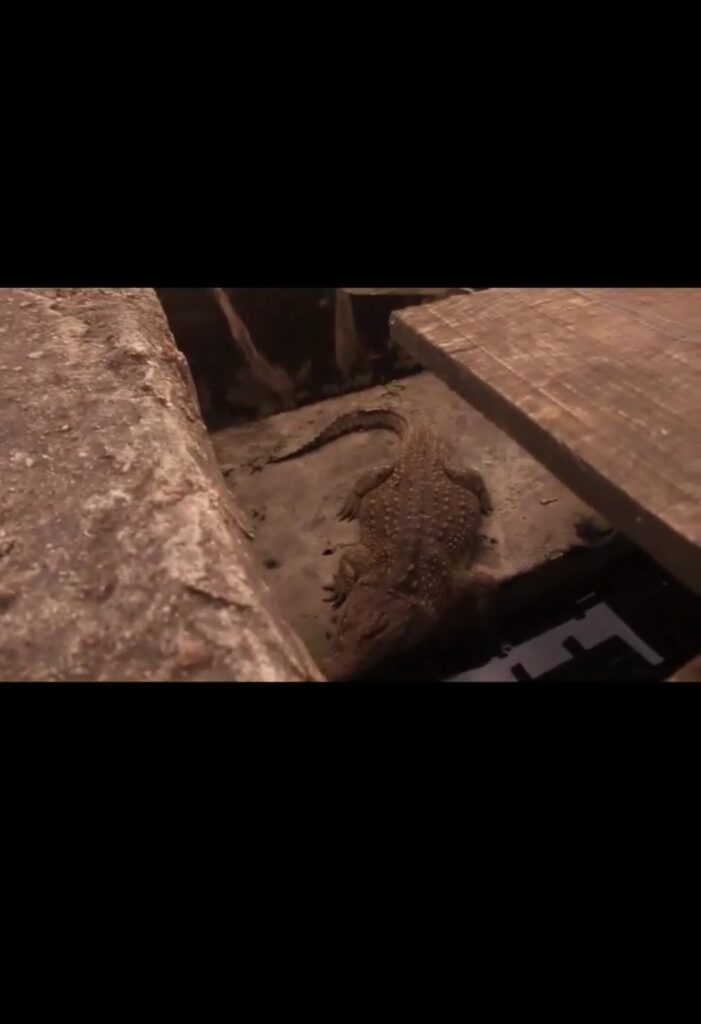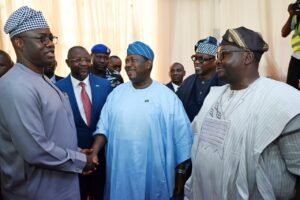Guardian of Tradition: Unraveling the Enigmatic Tale of Ile Delesolu’s Crocodile in Oje, Ibadan

It’s fascinating to ponder the origins of the crocodile residing in Ile Delesolu, Oje, Ibadan. The story behind its presence is as intriguing as it is ancient, dating back to the year 1940 when it first made its home in the compound.
According to the Mogaji of Ile Delesolu,Chief Raufu Yesufu the crocodile is deeply rooted in the cultural fabric of Oje and the family’s ancestral home in Ijeru. The tradition dictates that visitors inquire about the crocodile or its abode, and even if the crocodile has passed, its house remains a significant landmark, preserving the cultural heritage.
The journey of the crocodile began in Odoyan, a village established by Delesolu at Owobale. Hunters, following tradition, would bring any captured animals to the family house. Thus, when the crocodile was discovered, it too found its way to the compound, where it lived for over a century before its demise in 1939.
Continuing the tradition, the present Mogaji’s father acquired the current crocodile in 1940 from the Akeukere house in Baba Isale. Remarkably, this crocodile predates the present Mogaji himself, having been born in 1943, three years after its arrival at the house.
The significance of the crocodile was brought to light by white tourists, who would visit the family house to observe and feed it. This unconventional spectacle led to a newfound appreciation for the creature, contrary to the warnings given to local children, who were urged to only fetch water for the crocodile.
The crocodile’s nocturnal wanderings occasionally led it astray, prompting the family to construct a dedicated enclosure for its safety. Additionally, traditionalists often bring people for prayers and blessings, offering chickens to the crocodile as part of the ritual. Even medical professionals seek its blessings, using its water for patient baths and returning for thanksgiving.
The mystery of the crocodile’s reproduction adds another layer of intrigue, as it occasionally lays eggs despite the absence of a male counterpart. These eggs, larger than duck eggs, continue to perplex observers, highlighting the enigmatic nature of this ancient creature.
Ultimately, water remains the lifeblood of the crocodile, symbolizing its vital connection to the land and the cultural heritage it embodies.
As a global traveler, don’t miss the opportunity to explore Ile Delesolu in Oje when you find yourself in Ibadan.












